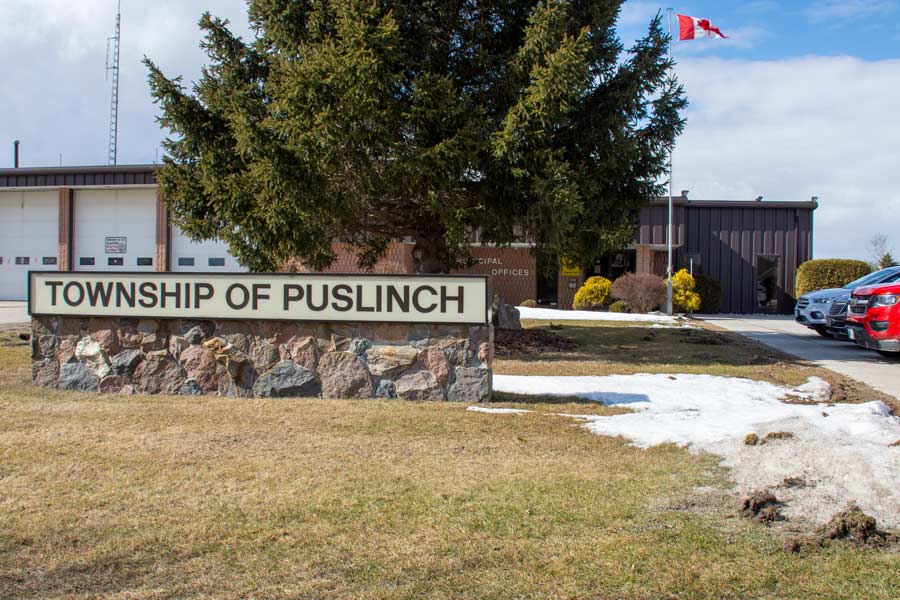ABERFOYLE – Almost a year after passing a site alteration bylaw, Puslinch council heard from staff that the bylaw is serving the community well and there should be no changes.
That is in sharp contrast to what local resident Jamye Mast spoke about as she delegated to council on Dec. 18.
“There’s an alarming disconnect” between what staff is claiming and the actual experience of residents, especially for farmers who need to move soil and add gravel as part of their normal farming practice, she said.
Mast added permit fees are too high, the process is complex, the bylaw is filled with legal jargon and individual property rights are being infringed upon with the bylaw.
“You should not need a waiver to fix potholes in your laneway,” she said.
Interim CAO Courtenay Hoytfox presented a report updating council on how the year has gone since the bylaw was passed on Feb. 7.
She said the problem of properties accepting illegal fill is real, especially if that fill is contaminated.
It poses a threat to groundwater, adds wear and tear on township roads, and can render farmland useless when bad soil is mixed with good.
If land becomes contaminated, it is the responsibility of the landowner to remediate it, and that is costly.
In some cases, farms are abandoned and then become the property of the township.
“It should not be the responsibility of taxpayers to bear that cost,” Hoytfox said. “Remediation is very costly. Having permits protects the property owner too.”
The bylaw is flexible, she said and allows for normal farm practices and for residents to do small jobs without a permit.
“Generally, what we’re seeing is large scale importation,” she added.
Since the bylaw was passed, the township has 20 site alterations files that have been or are being processed.
In three of those cases the property owner contacted the township prior to commencing work. The remaining 17 are the result of a complaint and bylaw enforcement.
One of those was a minor alteration, 11 were intermediate alterations, two were large alterations and five were major site alterations with volumes ranging from 16,500 cubic metres to more than 100,000 cubic metres of fill.
“At a number of the sites the soil was considered waste. It should have gone to landfill,” she said.
That underscores the magnitude of the situation right now, Hoytfox said, and it will get worse in 2027 when the province implements amendments to Ontario Regulation 406/19 that reduce restrictions on importing fill.
It will become a greater problem for rural areas in close proximity to the GTA as developers have to get rid of fill when they build subdivisions, roads and highways.
With two highways dissecting the township and growth pressures on four sides in Guelph, Halton, Waterloo Region and Hamilton, Puslinch is ideal for soil importation.
Property owners are paid to accept soil, anywhere from $65 to $200 per truck load; 70,000 cubic metres of fill could net the property owner $455,000 to $1.4 million.
“Municipalities with robust regulations and processes in place will be better positioned to address illegal activity,” Hoytfox wrote in her report.
The bylaw is not difficult to navigate for small projects, she said. Residents can reach out to staff, describe their project and staff can advise whether permits or waivers are needed.
Large projects likely do require the expertise of a planner or lawyer to work through the requirements and to be compliant with the bylaw.
“Soil is complex,” Hoytfox said. “It is a complex issue.”
Councillors asked staff to continue monitoring the bylaw and to receive comments from the public.
Councillor Jessica Goyda asked staff to monitor the small-scale projects in particular to ensure there are not barriers for residents to do simple jobs on their property, like fill a flower bed or potholes in their laneway.




